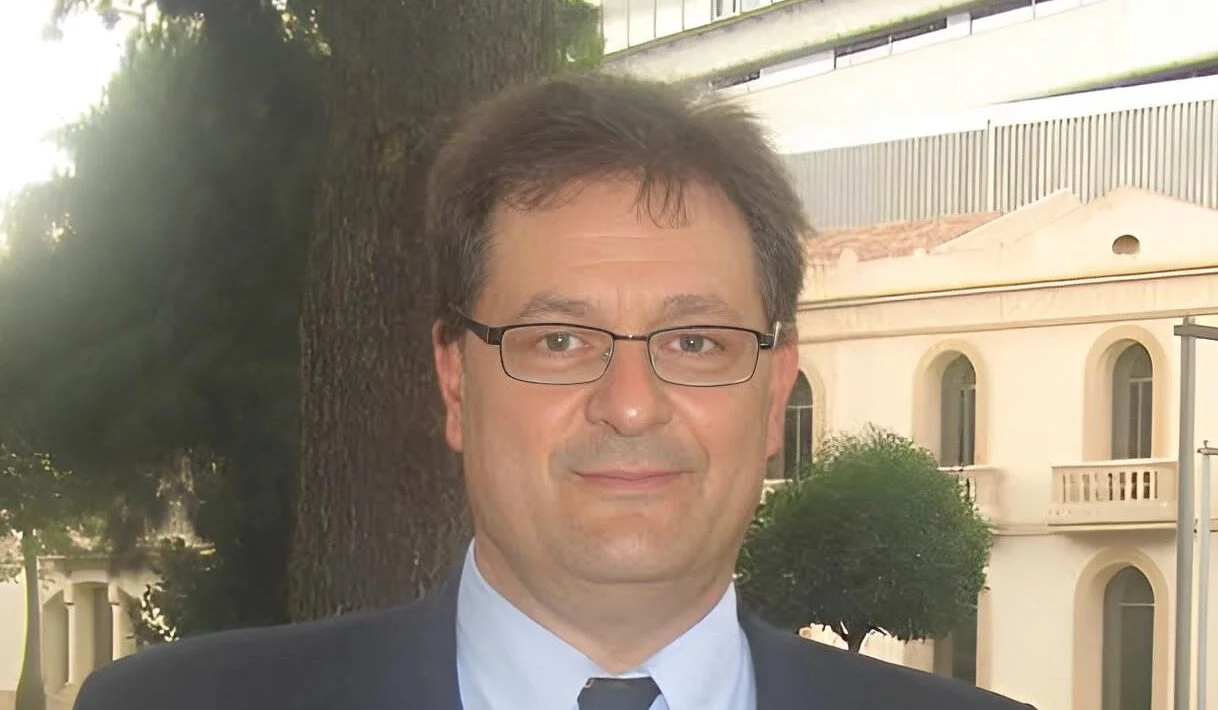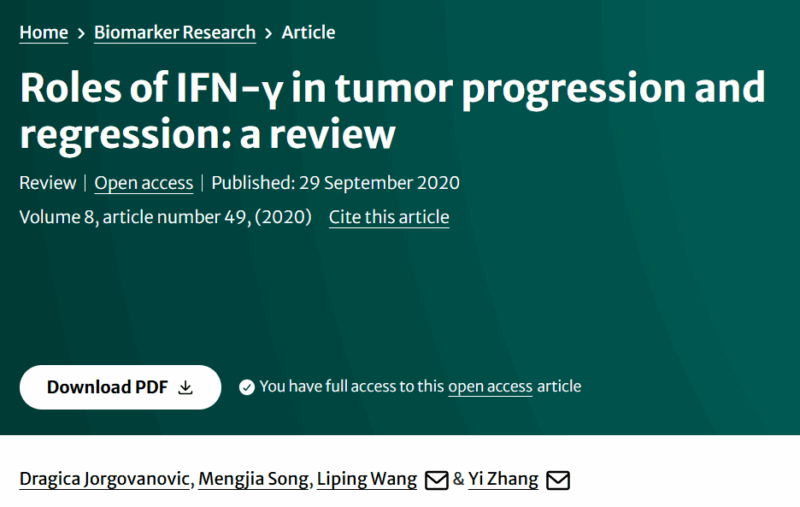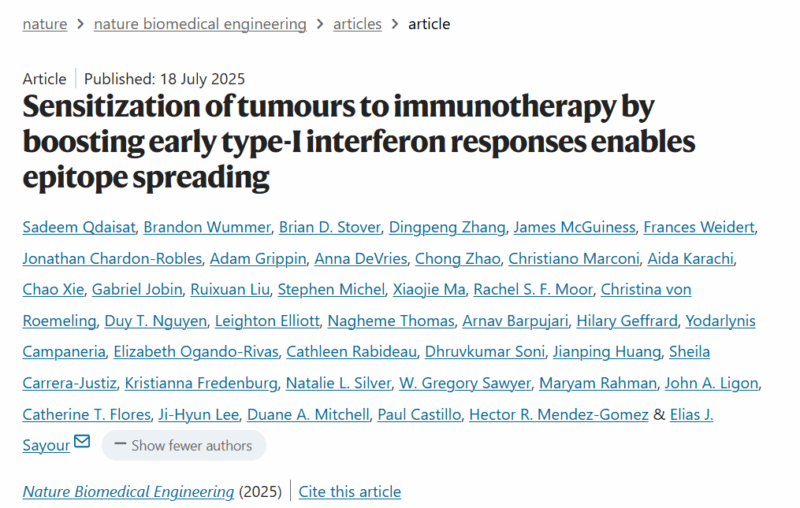
Miguel Bronchud: Cancer Vaccines – Back to Interferon Therapies?
Miguel Bronchud, Co-Founder of Regenerative Medicine Solutions, shared a post on LinkedIn about 3 papers on interferon therapies:
“Cancer vaccines – back to interferon therapies?
Cancer research is at least one century old, and some fifty years ago, type-I interferon (IFN) responses with human recombinant gene products were already investigated in the clinical setting.
Interferon-γ (IFN-γ) plays a key role in the activation of cellular immunity and subsequently, stimulation of antitumor immune response. Based on its cytostatic, pro-apoptotic, and antiproliferative functions, IFN-γ is considered potentially useful for adjuvant immunotherapy for different types of cancer.
Moreover, IFN-γ may inhibit angiogenesis in tumor tissue, induce regulatory T-cell apoptosis, and/or stimulate the activity of M1 proinflammatory macrophages to overcome tumor progression. However, the current understanding of the roles of IFN-γ in the tumor microenvironment (TME) may be misleading in terms of its clinical application.
Some researchers believe it has anti-tumorigenic properties, while others suggest that it contributes to tumor growth and progression.
Title: Roles of IFN-γ in tumor progression and regression: a review
Authors: Dragica Jorgovanovic, Mengjia Song, Liping Wang, Yi Zhang
You can read the Full Article in Biomarker Research.

Some researchers believe the concentration of IFN-γ in the TME determines its function. Further, it has been reported that tumors treated with low-dose IFN-γ acquired metastatic properties while those infused with high doses led to tumor regression.
Pro-tumorigenic role may be described through IFN-γ signaling insensitivity, downregulation of major histocompatibility complexes, upregulation of indoleamine 2,3-dioxygenase, and checkpoint inhibitors such as programmed cell death ligand 1.
Title: Myeloid cell‐based delivery of IFN‐γ reprograms the leukemia microenvironment and induces anti‐tumoral immune responses
Authors: Adele Mucci, Gabriele Antonarelli, Carolina Caserta, Francesco Maria Vittoria, Giacomo Desantis, Riccardo Pagani, Beatrice Greco, Monica Casucci, Giulia Escobar, Laura Passerini, Nico Lachmann, Francesca Sanvito, Matteo Barcella, Ivan Merelli, Luigi Naldini, and Bernhard Gentner
You can read the Full Article in EMBO Molecular Medicine.

Clinical trials in leukemia with non-recombinant IFNs date back more than fifty years and more recent genetic therapy approaches have been proposed-interferon-γ (IFN-γ) reduced tumor progression in mouse models of B-cell acute lymphoblastic leukemia (B-ALL) and colorectal carcinoma (MC38). Its activity depended on the immune system’s capacity to respond to IFN-γ and drove the counter-selection of leukemia cells expressing surrogate antigens.
Gene-based IFN-γ delivery induced antigen presentation in the myeloid compartment and on leukemia cells, leading to a wave of T cell recruitment and activation, with enhanced clonal expansion of cytotoxic CD8+ T lymphocytes – enhanced by either co-delivery of tumor necrosis factor-α (TNF-α) or by drugs blocking immunosuppressive escape pathways, with some therapeutic potential.
In 1987, John Wagstaff at the Christie Hospital in Manchester reported a phase I on a recombinant gamma IFN – with a specific activity of 2×106IU/mg protein administered s.c. 3 days per week for 2 months to patients with solid tumors.
The maximum tolerated dose (MTD) was 5.0 mg/m2 per injection, and 6 patients were treated at the MTD. Clinical toxicity was significant, and efficacy in advanced cancers previously treated by chemotherapy was limited (partial regression or stabilization), but some responses were observed.
Now, a recently published paper reports that (at least in mice) resistance of tumours to immunotherapy is dictated by the absence of a ‘damage response’, an innate inflammatory and immune response, which can be restored by boosting early type-I interferon responses to enable epitope spreading and self-amplifying responses in treatment-refractory tumours.
From this to a ‘universal anti-cancer vaccination’, there is a ‘very long shot’ – that not even a legendary ‘birdie’ would provide. But it is indeed inspiring and could help to reactivate the IFN-promised therapeutic strategies?
These early responses by type-I interferons in this pre-clinical model are thought to mediate the success of immune checkpoint inhibitors as well as epitope spreading in poorly immunogenic tumours and these interferon responses can be enhanced via systemic administration of lipid particles loaded with RNA coding for tumour-unspecific antigens.
Qdaisat, S., Wummer, B., Stover, B.D. et al. Sensitization of tumours to immunotherapy by boosting early type-I interferon responses enables epitope spreading. Nat. Biomed. Eng(2025).”
Title: Sensitization of tumours to immunotherapy by boosting early type-I interferon responses enables epitope spreading
Authors: Sadeem Qdaisat, Brandon Wummer, Brian D. Stover, Dingpeng Zhang, James McGuiness, Frances Weidert, Jonathan Chardon-Robles, Adam Grippin, Anna DeVries, Chong Zhao, Christiano Marconi, Aida Karachi, Chao Xie, Gabriel Jobin, Ruixuan Liu, Stephen Michel, Xiaojie Ma, Rachel S. F. Moor, Christina von Roemeling, Duy T. Nguyen, Leighton Elliott, Nagheme Thomas, Arnav Barpujari, Hilary Geffrard, Yodarlynis Campaneria, Elizabeth Ogando-Rivas, Cathleen Rabideau, Dhruvkumar Soni, Jianping Huang, Sheila Carrera-Justiz, Kristianna Fredenburg, Natalie L. Silver, W. Gregory Sawyer, Maryam Rahman, John A. Ligon, Catherine T. Flores, Ji-Hyun Lee, Duane A. Mitchell, Paul Castillo, Hector R. Mendez-Gomez, Elias J. Sayour
You can read the Full Article in Nature Biomedical Engineering.

More posts featuring Miguel Bronchud.
-
Challenging the Status Quo in Colorectal Cancer 2024
December 6-8, 2024
-
ESMO 2024 Congress
September 13-17, 2024
-
ASCO Annual Meeting
May 30 - June 4, 2024
-
Yvonne Award 2024
May 31, 2024
-
OncoThon 2024, Online
Feb. 15, 2024
-
Global Summit on War & Cancer 2023, Online
Dec. 14-16, 2023
